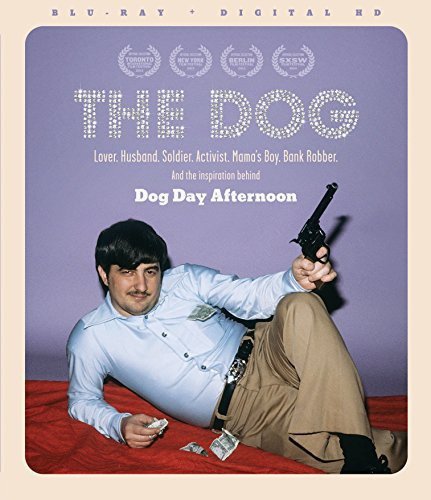
Written by Kristen Lopez
It’s an unspoken rule in Hollywood’s appropriation of true events that said events are either painfully underwhelming or infinitely juicer than what ends up on the screen. So it is with the story of John Wojtowicz, the man who inspired Sidney Lumet’s 1975 drama, Dog Day Afternoon. Wojtowicz’s story is fascinating, but the flaw of a documentary with one predominant voice is bias smothers the filmmakers’ intention of burrowing under the surface. Much like Dog Day Afternoon itself, there’s way more left off-screen than presented within.
On a hot August day in 1972, John Wojtowicz and an accomplice robbed the Chase Manhattan Bank in Brooklyn. A media circus, already out of control due to Wojtowciz’s antics, intensified once the robber stated his motive was to use the money to pay for his bride’s sexual reassignment surgery. After serving six years out of his 20-year sentence, Wojtowciz returned to a somewhat normal life.
Wojtowicz says Dog Day Afternoon was “the abbreviated version” of his story, and directors Allison Berg and Frank Keraudren flesh out every facet of the man’s life, including his time in the burgeoning gay rights movement, the robbery, and his relationships with his wives and mother. John is a character, unrepentant in his lifestyle and very candid about discussing his sexual exploits. However, he’s still a fairly awful human being who acknowledges he joined the gay rights movement in order to seduce men, and bluntly says he raped one of the accomplices to the robbery. All of this should turn you against the man, but he’s the perfect storyteller. He’s a New York institution in his own mind, taking the documentarians on a tour of the city he once knew, and taking us home to meet his mother and disabled brother.
For the entire hullabaloo about the robbery, Wojtowicz never once regrets his actions. Even as we watch him deteriorate from cancer, he says he’d be willing to do it all over again. And his motives were one of the more intriguing elements of the robbery; he did it for love. The Dog isn’t so much Wojtowicz’s story as the tale of his lady love, transsexual Liz Eden. Eden died in 1987 and thus her voice is limited to archival interviews. It’d be great for someone to go back and properly explore her relationship as it appears there’s quite a bit of “he said, she said” to her story with John. Wojtowicz says he was against Eden getting the sex change – part of the reason Eden claimed John’s motive was a lie – and their relationship didn’t last beyond their wedding.
What gets lost within The Dog is this concept of voice. We’re certainly aware of what Wojtowicz thinks about everything. Not only do we get photos, videos, and interviews with associates of John’s, but John is our narrator. However, this severely narrows the film’s perspective. Yes, John is open about his sexuality, but there’s no one to back up the assertion we’re already aware of: John Wojtowicz is a criminal. Eden is deceased, John’s first wife disagrees with his lifestyle but really just laughs everything off, his mother is a yes-man, one of the hostages from the actual robbery is interviewed as an afterthought, and we hear nothing about Wojtowicz’s father or anything from his two children.
Instead, we’re left with a documentary about a man who believes he’s beaten the system, and maybe he has. His story seduced a nation, interrupting a Richard Nixon speech, and his wild storytelling is compelling, but the documentary never rises about “the abbreviated version.” Maybe if someone had been interviewed, cops, other hostages, anyone who could give us a different perspective on John. Too often, Wojtowicz just contradicts the negative statements and the directors move on, never willing to refute what “The Dog” says.
The finished product yields sufficient entertainment, but I wanted more. Unwilling participants are a given in a documentary, but some acknowledgement of the fact would have been enough to counter balance John Wojtowicz in some way. As it stands, The Dog is a fascinating documentary, the true story behind the true story. The late John “The Dog” Wojtowicz is a colorful man who lived without regrets, and whether he robbed a bank for love or fame, the documentary shows evidence that he had plenty of both.